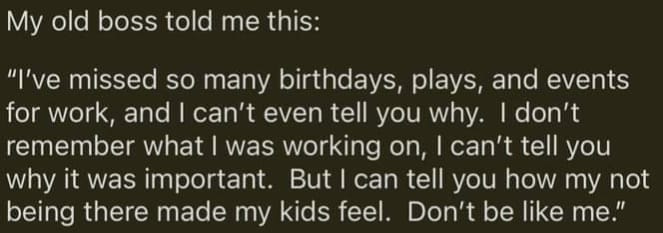Back when I entered the workforce in the 1990s, the term “work/life balance” was fairly new.
And in most professional circles, they were empty buzzwords—the people saying “We value work/life balance in this firm” often worked 70-hour weeks… and they expected everyone else to do the same (at least if those people wanted to be successful).
As the Boomers transition out of the professional world, the corporate culture in many places has changed. Gen-Xers have never had the numbers to impact the culture as much as the two giant cohorts on either side of us, so the culture is now getting its greatest influence from Millennials. The leading edge of this cohort is now in their early 40s. If they are going to have kids, now is the time they are likely to be having and raising them.
And most of them don’t want to miss it.
If you want to attract and retain a talented and motivated staff, support and encourage a healthy work/life balance. Parental leave, hybrid work schedules, flexible hours, and other things that allow your people to keep the “life-side” in balance with the work-side will improve recruitment, retention, and morale. It’s good for productivity in the long-term, as well. It benefits parents, of course, since they are the ones juggling child-care and scheduling, but it also benefits child-free team members, since they also need to “recharge their batteries” in order to be at their best during work hours.
Some people will want to do more. They will want to put in the extra work and the extra hours and grow in their professional roles more quickly. And (of course!) everyone should be given the opportunities to do so, regardless of gender, marital status, parental status, etc.—we are well past those old “mommy track” models in 2023.
Encourage each person on your team to be a solid performer at their current level, and let each person know what they will need to do (getting training, building experience, demonstrating competencies, etc.) in order to move to the next level. They might do it now; they might do it when their youngest starts in elementary school. But don’t expect that every person in your organization is looking to fast-track their next promotion at every point in their careers. Many people in the workforce today want to do good work while they are in the office so that they can take home a paycheck to support what is REALLY important.
And you, as the leader, should be a role model. Walk the walk.
(image generated using Midjourney)




